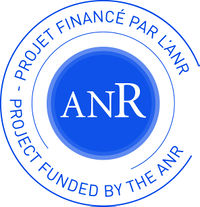Difference between revisions of "Main Page"
| Line 8: | Line 8: | ||
== Project summary == | == Project summary == | ||
The DYNEOL project proposed by the CORIA, LEGI, LML and PPRIME laboratories, is a fundamental research project, which aims at quantifying the dynamical behavior of the flow around a blade as a function of the turbulent upstream flow. This upstream flow may contain different families of coherent structures, or may feature a mean shear due to the presence of a large-scale boundary layer. The blade itself may be fixed or rotating. Such situations are representative of wind and marine turbine farms. However, these phenomena are not presently taken into account in the global performance models. To investigate the interactions of the upstream turbulence with the blade, an original approach will be followed: high-fidelity optical diagnostics and simulations will be applied to the analysis of the conditioned kinetic energy budget. This novel approach will be complemented with state-of-the-art analysis tools such as Proper Orthogonal Decomposition or Dynamic Mode Decomposition that will be applied to such flow for the first time. Both fixed-wing and rotating-wing experiments will be investigated. 2D- and 3D-PIV will be compared to Large-Eddy Simulation results to assess the different approaches and bring insight into such interactions. | The DYNEOL project proposed by the CORIA, LEGI, LML and PPRIME laboratories, is a fundamental research project, which aims at quantifying the dynamical behavior of the flow around a blade as a function of the turbulent upstream flow. This upstream flow may contain different families of coherent structures, or may feature a mean shear due to the presence of a large-scale boundary layer. The blade itself may be fixed or rotating. Such situations are representative of wind and marine turbine farms. However, these phenomena are not presently taken into account in the global performance models. To investigate the interactions of the upstream turbulence with the blade, an original approach will be followed: high-fidelity optical diagnostics and simulations will be applied to the analysis of the conditioned kinetic energy budget. This novel approach will be complemented with state-of-the-art analysis tools such as Proper Orthogonal Decomposition or Dynamic Mode Decomposition that will be applied to such flow for the first time. Both fixed-wing and rotating-wing experiments will be investigated. 2D- and 3D-PIV will be compared to Large-Eddy Simulation results to assess the different approaches and bring insight into such interactions. | ||
| + | |||
| + | == Support == | ||
| + | [[File:logo_ANR.jpg|center|frameless|200px|link=http://www.agence-nationale-recherche.fr|]] | ||
Revision as of 10:58, 14 September 2018
DYNEOL
DYNamique de la turbulence sur des profils EOLiens et hydroliens
Turbulence DYNamics around wind and marine turbine blades
Project summary
The DYNEOL project proposed by the CORIA, LEGI, LML and PPRIME laboratories, is a fundamental research project, which aims at quantifying the dynamical behavior of the flow around a blade as a function of the turbulent upstream flow. This upstream flow may contain different families of coherent structures, or may feature a mean shear due to the presence of a large-scale boundary layer. The blade itself may be fixed or rotating. Such situations are representative of wind and marine turbine farms. However, these phenomena are not presently taken into account in the global performance models. To investigate the interactions of the upstream turbulence with the blade, an original approach will be followed: high-fidelity optical diagnostics and simulations will be applied to the analysis of the conditioned kinetic energy budget. This novel approach will be complemented with state-of-the-art analysis tools such as Proper Orthogonal Decomposition or Dynamic Mode Decomposition that will be applied to such flow for the first time. Both fixed-wing and rotating-wing experiments will be investigated. 2D- and 3D-PIV will be compared to Large-Eddy Simulation results to assess the different approaches and bring insight into such interactions.
